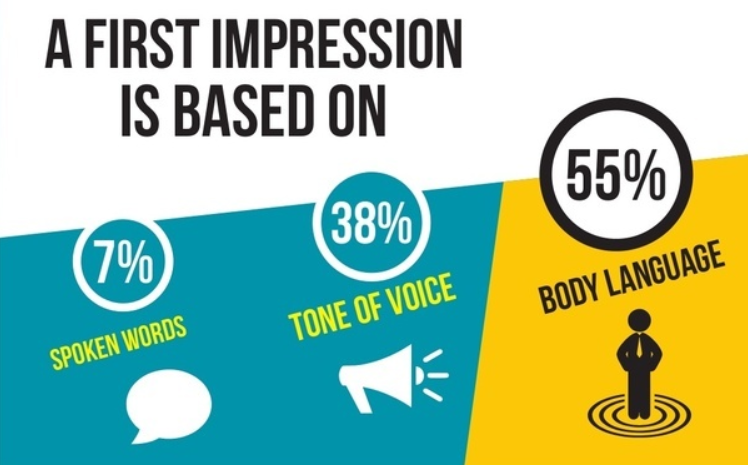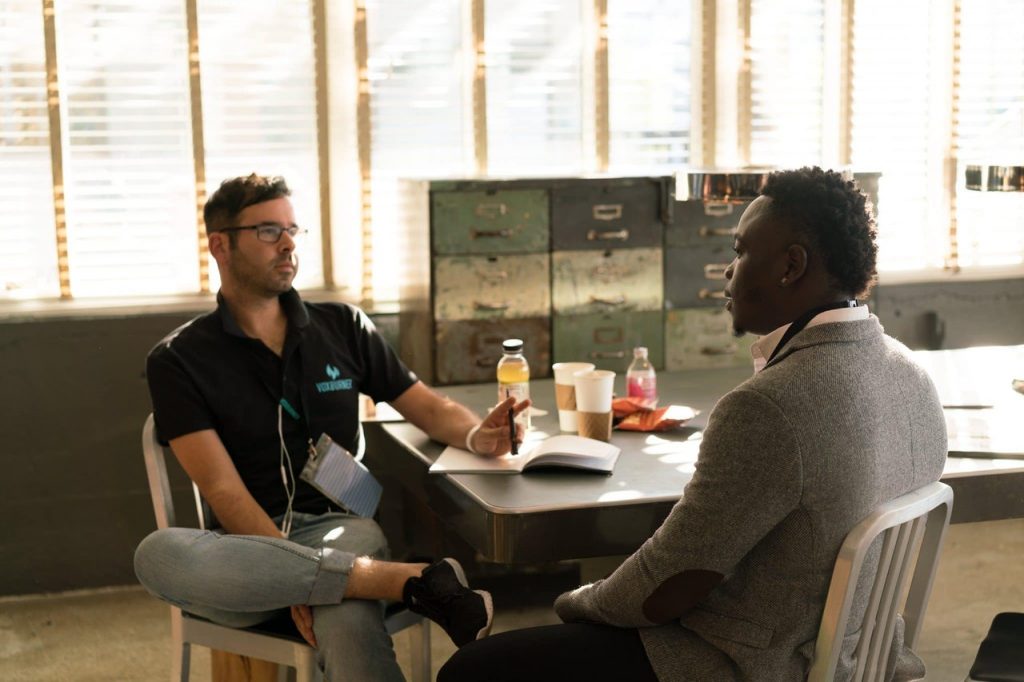There is a saying that goes by ‘You never get a second chance to make a good first impression.’ Body language matters in interviews. Some studies have even shown that body language constitute 55% of the first impressions.

Although how you answer your questions is important – and therefore one should not be underestimating the importance of preparing beforehand for the job interview, you should be making sure that the body and the mouth are on the same wavelength.
Tips to Ace your Interviews with the Appropriate Body Language
1. The Greeting
Assuming you arrive on time (read: about 15 minutes before your interview appointment), you will be probably asked to wait at the reception.
In most cases, when your time is up, the interviewer actually walks to you to greet you first. Stand up, smile and give the interviewer a firm brief handshake. Let the interviewer lead the way.

In other cases, the receptionist might direct you to the meeting room. In this case, knock the door, enter on acknowledgement and repeat the same as above – walk with an upright confident posture, followed by a brief but firm handshake.
Tip: Make sure your hands are not sweaty!
2. Sitting Down
The secret behind an assertive sit down is to go for the Straight, Still and Confident approach.
Sitting straight may sound trivial, but for a lot of people who have a slouch bad posture, one can end up looking weak or disinterested during the interview. Practice on improving your posture – this may help you beyond the job interview scenarios as well!

Fidgeting is also another big no-no. Not only it will distract the interviewer, but it can make you sound less confident – so consciously train your mind to sit still.
Finally, try to ooze an assertive confident image by having an open stance. Avoid crossing your legs and your arms, which may suggest a defensive approach to criticism.
3. Use of Gestures
While sitting still might give you a confident and calm image, doing the right dose of hand gestures during the interview, might actually boost your engagement with the interviewer.

Always keep in mind to have your palms open and facing up – studies have shown that this type of body language instills honesty and transparency with the audience. Closed fists can be interpreted as being aggressive, while facing palms down can be perceived as dominant (as opposed to assertive).
Gestures should be natural. Do not try to make exaggerated gestures to make a point. Your most innate natural gestures can help you sound passionate.
4. Other Body Language Engagement
The above tips should be enough to make a good first impression. However there are other subtleties which you must be aware of. Using these further engagement tricks can play further in your favor.
Smiling: This is in our opinion one of the most important body language dimensions. It is understandable that a job interview is no joke, and can be a nervous wrecking experience. However, with enough practice beforehand, aiming to smile during an interview is guaranteed to leave you with a good chance of nailing that interview, especially if you demonstrate you have the right skills for the job.

Acknowledging: One of the best kept secrets in body language techniques is to mirror the movements of the interviewer, particularly to acknowledge what the interviewer has to say. Another common technique is also to nod to demonstrate engagement.
Eye Contact: This is another important body language technique that can make you sound engaged, engaging and assertive. Strike a balance between a staring gaze competition and deflecting eye contact at all costs – keep it natural. And if there are more than one interviewer, make sure to keep an equal amount of eye contact with all of them.
Conclusion
Having the right skills for the job is important. Selling yourself with the interviewer by leveraging body language techniques is even more important. The body language matters for job interviews.
If you have not done yet, make sure you get our eBook – The Modern Job Seeker Guide where we explain in more detail how to handle job interviews.



